Creating a New Project (Magic xpa 3.x)
From the File menu, you can click New Project to create a project. The New Project dialog box lets you specify a project name and browse to the location to store the automatically generated project files.
The New Project dialog box includes the following fields:
|
|
|
|
Project name
|
The project name cannot be '.' or '..' and cannot contain the following characters: / ? : & \ = “ < > | # % *
The Project name cannot start with the $ character.
|
|
Local Files Folder
|
Click the Browse button to find the location where you want to create your new project directory.
The default location is [Magic xpa directory]\Projects\.
A subfolder with the same name as the project name will be created under the Local Files Folder.
If the project directory already exists in the same location, an error message will appear in the status line: “The project directory already exists in the specified location”.
If the project location does not exist, you will be asked to confirm the creation of the location path.
|
|
Create a new project on the Version Control Database
|
Magic xpa lets you add a project to a Version Control database and use the Version Control advanced options. By selecting this check box, a new project with the same name will be created on the Version Control database.
See also How Do I Create a Project to Be Managed by Version Control?
|
|
Add as module in current project
|
When you already have an opened project, the Add as module in current project check box will also appear. If you select this option, your project will be added as a module to the current project.
|
|
Local Files Strategy
|
Defines whether the local folder will contain a full project (All objects) or only the Checked out objects. Using the Checked out strategy is only possible when the Version Control server supports shadow folder. Since version: 1.9
See also How Do I Work with Version Control Without a Local Copy of the Source Files?
|
|
VC Shadow Folder
|
This is required only when the Local Files Strategy field is set to Checked out objects.
When using the Checked out strategy, only the checked out objects are stored locally. Magic xpa uses the rest of the files from the central folder (shadow folder) that is defined here. The shadow folder is defined in the Version Control server. Note that Magic xpa searches for the files in the project subfolder under the VC Shadow Folder. So, for example, if the shadow folder is defined in the Version Control server as \\Server\Shadow\myProj, then in Magic xpa you only need to specify \\Server\Shadow\. Since version: 1.9
See also Defining a Shadow Folder
|
When you create a new project, the Magic xpa Studio engine creates a new directory with the name of the project, in the location that you specify in the New Project dialog box. XML files are generated inside the folder representing the objects in your project, such as components, helps, menus, programs, and data sources.
The project files include:
-
An Exports subdirectory for future export files.
-
A Source subdirectory, which contains all of the project's source files.
-
A main project file, which has the same name as the project name, as well as an .edp suffix. The [project].edp file is the executable file that opens your project.
-
If you are creating a project that is part of a larger project, you must save the project in the same folder as the larger project.
|
Note:
|
When using the Checked out strategy and checking in a file at the same time that another user reads it from the shadow folder, you might receive an error from the Version Control client and the file will not be updated to the shadow folder. VSS, for example, shows the following screen:

In such cases, you should perform check-out and check-in again, so your change will be available in the shadow folder.
|
Project Access
Default Project
How Do I Create a New Project?

